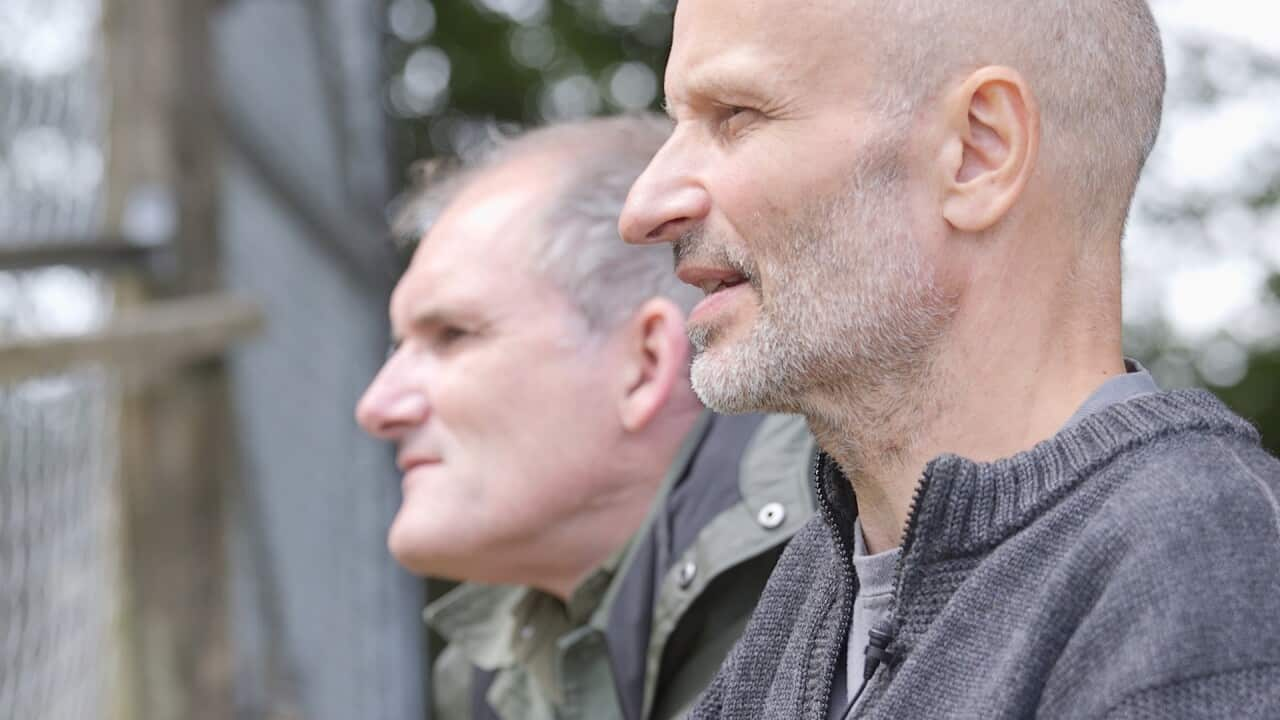The poster-child of Thailand’s pro-democracy movement was pushed out of a hotel room in a wheelchair by police in the early hours of 15 October.
Panusaya Sithijirawattanak, or Rung, as she likes to be known, could walk but she chose not to.
Her dramatic arrest capped the largest protest rally the country has seen since Thailand’s government came to power in a bloodless 2014 coup.
As Rung was being carted off, swarms of riot police were clearing her fellow protesters off Bangkok’s streets.
A day before, tens of thousands marched behind Rung and a loose collection of other student leaders, in an unprecedented challenge to the Thai establishment: the government and the all-powerful monarchy.

22-year-old Rung is helping lead the country's protests. Source: Dateline
“Our people are democratic. We will not use violence. We come in peace. We have our brains and determined mind as our weapon,” Rung says over loud speaker at the protest.
A search for democracy
What started earlier in the year as a pro-democracy movement against a military government that came to power by coup d'état in 2014, has since evolved into a widespread demand for monarchy reform.
Protesters had - and still do - demanded Prime Minister Prayuth Chan-ocha's resignation.
They want to re-write the constitution, which they say gives the military-backed government a stranglehold on power.
And they call on the authorities to desist from persecuting opposition figures, particularly those in exile who fear Thailand’s long reach.

Rung and other student activists led tens of thousands of marchers through Bangkok’s streets. Source: Dateline
To be clear, Rung isn’t calling for the overthrow of the monarchy; that would be a one-way ticket straight to jail.
Rather, she read out a 10-point reform manifesto aimed at curbing the Thai King’s wealth and power. Still, in a country that was under absolute monarchy less than a hundred years ago, the move was breathtaking.
“Why me? No one was ready to front the camera to talk about the monarchy. No one was ready to be known,” says Rung.
“At the moment I think the country is not governed democratically. But it uses the instruments of democracy in order to claim to be one.
“The people governing the country are the nobility and the army. It’s collusion,” she says.

Royalists look on at anti-government protesters during a counter demonstration in Bangkok, Thailand. Source: Getty Images AsiaPac
The unimaginable
Another defining moment took place less than 24-hours before Rung’s arrest, during the dying light of the big day of protest.
A royal motorcade, headlined by a vehicle carrying the Queen and a prince, passed the periphery of the pro-democracy rally.
Though well-guarded on the street, the motorcade was met with a mass showing of three-finger salutes – a symbol of resistance adopted from The Hunger Games.
“You would never in a million years, imagine seeing [a] royal motorcade in such a situation.
“This never happened before in the modern history of Thailand,” says Pavin Chachavalpongpun, an academic in Thai politics and economy at Kyoto University.
Early the next morning, Thai state television cited the motorcade incident and threats to national security as it blared out a decree: Bangkok was now under a “severe” state of emergency - the country was already under an existing emergency state to curtail the COVID-19 pandemic - and gatherings of more than four people were banned.
The gauntlet had been thrown down, protest rallies were declared over and a mass round up of the student leaders began.
Rung was in a hotel room when the police came knocking.
Watch Rung’s story on Dateline on Tuesday 27 October, 9:30pm on SBS.



